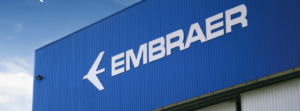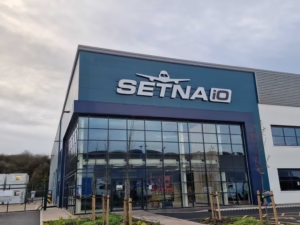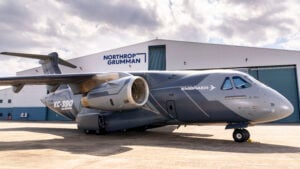JetZero, a start-up airframer pioneering the development of the Z4 aircraft, has announced a partnership with SHZ Advanced Technologies to adapt liquid hydrogen (LH₂) storage and distribution systems for future variants of its design. The collaboration will be carried out under the NASA-backed Advanced Aircraft Concepts for Environmental Sustainability 2050 (AACES) project, which supports research into technologies that can dramatically cut aviation emissions.
The Z4 represents a bold step in aircraft design. Unlike traditional tube-and-wing aircraft, the Z4 is an all-wing design, meaning its fuselage forms part of the wing structure. This approach reduces aerodynamic drag while increasing lift, enabling fuel savings of up to 50% when using conventional jet fuel. Importantly, the wider fuselage configuration is well-suited to accommodating bulky cryogenic hydrogen tanks, giving the Z4 an advantage in future-proofing for hydrogen adoption.
In its initial form, the Z4 will rely on fossil-based jet fuel but still deliver significant reductions in emissions compared to current aircraft. JetZero highlights that the aircraft will not only help airlines move towards their net-zero 2050 targets but will also reduce airport noise pollution. With engines mounted above the fuselage, noise for communities near airports could be cut by as much as four times.
SHZ Advanced Technologies brings considerable expertise to the partnership, with 14 patents relating to hydrogen technologies, including novel LH₂ storage solutions and an innovative compressor-pump. Its systems are designed to overcome the challenges of storing and distributing cryogenic hydrogen safely and efficiently, a key hurdle in making hydrogen-powered flight commercially viable.
JetZero was awarded an AACES grant in late 2024 by NASA to explore the use of cryogenic liquid hydrogen in commercial aviation. The partnership with SHZ aims to build on this funding, developing storage and distribution solutions that could ultimately allow the Z4 to operate as a hydrogen-powered commercial airliner.
The collaboration marks a significant step in aviation’s transition towards cleaner fuels. If successful, the JetZero-SHZ partnership could help pave the way for hydrogen to play a central role in reducing greenhouse gas emissions across global air transport.
































